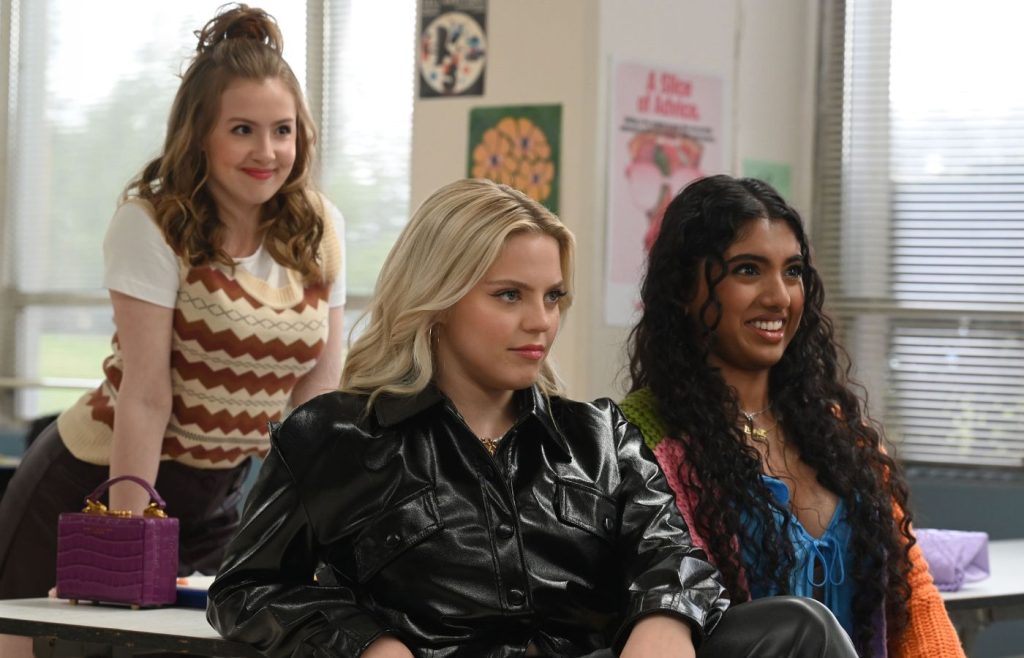
Mean Girls Musical Controversy: The Backlash Against Paramount

Paramount, the studio behind Mean Girls, has faced backlash for misrepresenting the musical film in its promotional teasers and trailers. Audiences express frustration over the lack of transparency in the marketing of the film, sparking controversy and debate.
The Deceptive Marketing Strategy
Paramount, the studio behind Mean Girls, faced criticism for its misleading promotional teasers and trailers, which failed to disclose that the film is a musical. The buzz surrounding Mean Girls was undeniable, with discussions ranging from its ties to reality to the infamous joke about Lindsay Lohan. However, the studio's decision to conceal the musical aspect in its promotional materials sparked a wave of frustration among audiences.
The cast of the 2024 Mean Girls remake
Marc Weinstock, president of global marketing and distribution at Paramount, defended the strategy, stating, 'To start off saying musical, musical, musical, you have the potential to turn off audiences. I want everyone to be equally excited.' Despite Weinstock's intentions, audiences were not convinced, and the backlash was swift.
Many took to social media platforms to express their disappointment and sense of betrayal over the deceptive marketing. The sentiment was clear: audiences felt that Paramount had misled them and failed to provide transparency about the film's true nature. Twitter became a battleground for frustrated moviegoers who felt deceived by the studio's promotional tactics.
The comments on social media ranged from accusations of false advertising to outright frustration with the lack of honesty in the marketing. Users expressed their discontent, with one stating, 'It's best to not lie to your potential audience for a film you are marketing.' Another user echoed this sentiment, labeling the marketing as 'false advertising.' The outcry continued, with users questioning the ethics of such deceptive practices in film promotion.
Audience Outcry and Social Media Backlash
The audience's reaction to the deceptive marketing strategy was swift and unapologetic. Social media platforms became the battleground for frustrated moviegoers, with users expressing their feelings of betrayal and frustration over the lack of transparency in the film's promotion. The sentiment was clear: audiences felt misled and deceived by Paramount's promotional tactics, and they were not hesitant to vocalize their discontent.
Twitter, in particular, became a hub for the outcry, with users sharing their disappointment and calling out the studio for its false advertising. The comments ranged from expressions of disbelief to outright anger at the studio's attempt to conceal the musical aspect of Mean Girls. The general consensus was that honesty and transparency were crucial in film marketing, and Paramount had failed to uphold these principles.
Users on Twitter and other social media platforms criticized the studio for its lack of integrity and questioned the ethics of misleading audiences for the sake of generating excitement. The debate over deceptive marketing practices in the film industry was reignited, with many calling for accountability and transparency in promotional strategies.
Box Office Success Amid Controversy
Despite the controversy and backlash, Mean Girls proved to be a box office success in its opening weekend. The musical garnered $32 million domestically, surpassing its $36 million budget. This financial achievement signaled the film's commercial viability and resonated with audiences, despite the initial frustration over the deceptive marketing.
The box office numbers reflected the audience's willingness to embrace the musical, even after the controversy surrounding Paramount's promotional strategies. The success of Mean Girls at the box office highlighted the resilience of the film and its ability to capture the attention of moviegoers, despite the initial backlash.














